Body Mass Index
How to submit an article:
- Registered users can submit any published journal article that has a unique DOI (Digital Object Identifier) name or link to Research Hub.
- For example, you can paste the full DOI link:
https://doi.org/10.1109/5.771073or just the DOI name:10.1109/5.771073into the field above and click submit. - The person who is first to submit a valid article to Research Hub will forever be credited for it, and every article submission earns you +6 Research Points.
Also known as: BMI
Related Topics
Published research studies are articles that present the findings of original research that has undergone a peer-review process and has been made publicly available in scholarly journals, books or other media.

Pomegranate effects on the health aspects of women during peri‐ and postmenopause: A systematic review and meta‐analysis
2023 Nov 06 Phytotherapy Research Moeini R, Shirafkan H, Gorji N
Systematic Review Women's Health Menopause Pomegranate Hot FlushesPomegranate can significantly enhance women's health during and after menopause by reducing hot flashes severity and other menopause symptoms.
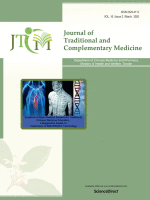
Integrative traditional Chinese medicine treatment for children with obstructive sleep apnea
2023 Aug Journal of Traditional and Complementary Medicine Lai WY, Wei CC, Lin CH, Hang LW, Shih YH, Huang FW, et al.
In a retrospective cohort study, children (<12 years old) with OSA were categorized into ITCM, western medicine (WM), and surgery cohorts. The ITCM follow-up cohort showed a significant reduction in apnea-hypopnea index (AHI) and respiratory disturbance index (RDI), with an increase in body mass index (BMI). Compared to the WM cohort, ITCM resulted in a significant difference in RDI reduction. The most prescribed TCM formula in ITCM was Forsythia and Laminaria Combination, with Ephedrae Herba as the most prescribed TCM herb. Further research on the pharmacological mechanisms and clinical efficacy of ITCM for pediatric OSA is warranted.
Cohort Study Children's HealthMechanistic and therapeutic insight into the effects of cinnamon in polycystic ovary syndrome: a systematic review
2021 Oct 09 Journal of Ovarian Research Maleki V, Faghfouri AH, Tabrizi FPF, Moludi J, Saleh-Ghadimi S, Jafari-Vayghan H, et al.
Systematic Review Blood Sugar Triglyceride PCOS HDL-C LDLCinnamon supplementation may significantly enhance metabolic status in women with polycicstic ovary syndrome, notably improving high-density lipoprotein and insulin sensitivity, and decreasing low-density lipoprotein, triglyceride, and blood glucose levels.

The Effects of Almonds on Gut Microbiota, Glycometabolism, and Inflammatory Markers in Patients with Type 2 Diabetes: A Systematic Review and Meta-Analysis of Randomised Controlled Trials
2021 Sep 26 Nutrients Ojo O, Wang XH, Ojo OO, Adegboye ARA
Systematic Review Meta-Analysis Type 2 Diabetes Gut Microbiota Obesity HbA1C AlmondAlmond-based diets may be effective in promoting short-chain fatty acid-producing bacteria and lowering glycated haemoglobin and body mass index in patients with type 2 diabetes compared with control.
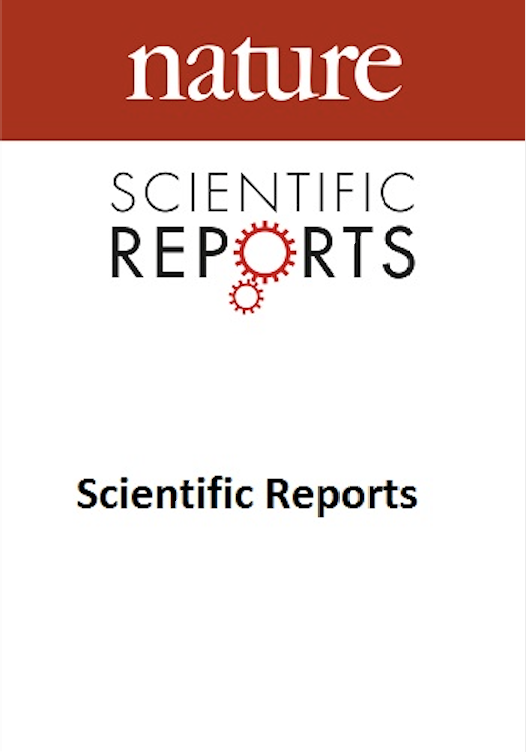
The combined effect of green tea and α-glucosyl hesperidin in preventing obesity: a randomized placebo-controlled clinical trial
2021 Sep 24 Scientific Reports Yoshitomi R, Yamamoto M, Kumazoe M, Fujimura Y, Yonekura M, Shimamoto Y, et al.
Clinical Study Randomised Controlled Trial EGCG Obesity Green TeaConsumption of green tea enriched with a citrus polyphenol, α-glucosyl hesperidin, can prevent weight gain and reduce body mass index, especially in individuals under 50 years.
Research insights are moderated by the Research Hub team and offer an at-a-glance overview of interesting research findings.

2023 Phytotherapy Research
Pomegranate can significantly enhance women's health during and after menopause by reducing hot flashes severity and other menopause symptoms.
Systematic Review Hot Flushes Menopause Pomegranate Women's Health
Pomegranate effects on the health aspects of women during peri‐ and postmenopause: A systematic review and meta‐analysis
Moeini R, Shirafkan H, Gorji N
2021 Journal of Ovarian Research
Cinnamon supplementation may significantly enhance metabolic status in women with polycicstic ovary syndrome, notably improving high-density lipoprotein and insulin sensitivity, and decreasing low-density lipoprotein, triglyceride, and blood glucose levels.
Systematic Review Blood Sugar HDL-C LDL PCOS Triglyceride
Mechanistic and therapeutic insight into the effects of cinnamon in polycystic ovary syndrome: a systematic review
Maleki V, Faghfouri AH, Tabrizi FPF, Moludi J, Saleh-Ghadimi S, Jafari-Vayghan H, et al.

2021 Nutrients
Almond-based diets may be effective in promoting short-chain fatty acid-producing bacteria and lowering glycated haemoglobin and body mass index in patients with type 2 diabetes compared with control.
Systematic Review Almond Gut Microbiota HbA1C Obesity Type 2 Diabetes
The Effects of Almonds on Gut Microbiota, Glycometabolism, and Inflammatory Markers in Patients with Type 2 Diabetes: A Systematic Review and Meta-Analysis of Randomised Controlled Trials
Ojo O, Wang XH, Ojo OO, Adegboye ARA

2021 Scientific Reports
Consumption of green tea enriched with a citrus polyphenol, α-glucosyl hesperidin, can prevent weight gain and reduce body mass index, especially in individuals under 50 years.
Clinical Study EGCG Green Tea Obesity
The combined effect of green tea and α-glucosyl hesperidin in preventing obesity: a randomized placebo-controlled clinical trial
Yoshitomi R, Yamamoto M, Kumazoe M, Fujimura Y, Yonekura M, Shimamoto Y, et al.

2021 Phytotherapy Research
Pomegranate extract supplement shows potential in improving glycemic indicators, serum lipids, anthropometrics, and blood pressure in patients with nonalcoholic fatty liver disease.
Randomised Controlled Trial Blood Sugar Cholesterol Diastolic Blood Pressure HDL-C Insulin Resistance
The effect of pomegranate extract on anthropometric indices, serum lipids, glycemic indicators, and blood pressure in patients with nonalcoholic fatty liver disease: A randomized double‐blind clinical trial
Goodarzi R, Jafarirad S, Mohammadtaghvaei N, Dastoorpoor M, Alavinejad P
Review Articles
Review articles summarise and critically evaluate the current state of research on a specific topic or field by synthesising multiple primary research studies.

Pomegranate effects on the health aspects of women during peri‐ and postmenopause: A systematic review and meta‐analysis
2023 Nov 06 Phytotherapy Research Moeini R, Shirafkan H, Gorji N
Systematic Review Women's Health Menopause Pomegranate Hot FlushesPomegranate can significantly enhance women's health during and after menopause by reducing hot flashes severity and other menopause symptoms.
Mechanistic and therapeutic insight into the effects of cinnamon in polycystic ovary syndrome: a systematic review
2021 Oct 09 Journal of Ovarian Research Maleki V, Faghfouri AH, Tabrizi FPF, Moludi J, Saleh-Ghadimi S, Jafari-Vayghan H, et al.
Systematic Review Blood Sugar Triglyceride PCOS HDL-C LDLCinnamon supplementation may significantly enhance metabolic status in women with polycicstic ovary syndrome, notably improving high-density lipoprotein and insulin sensitivity, and decreasing low-density lipoprotein, triglyceride, and blood glucose levels.

The Effects of Almonds on Gut Microbiota, Glycometabolism, and Inflammatory Markers in Patients with Type 2 Diabetes: A Systematic Review and Meta-Analysis of Randomised Controlled Trials
2021 Sep 26 Nutrients Ojo O, Wang XH, Ojo OO, Adegboye ARA
Systematic Review Meta-Analysis Type 2 Diabetes Gut Microbiota Obesity HbA1C AlmondAlmond-based diets may be effective in promoting short-chain fatty acid-producing bacteria and lowering glycated haemoglobin and body mass index in patients with type 2 diabetes compared with control.
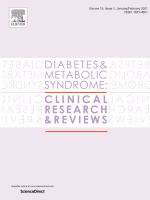
Effects of cashew nut consumption on body composition and glycemic indices: A meta-analysis and systematic review of randomized controlled trials
2021 Mar Diabetes & Metabolic Syndrome: Clinical Research & Reviews Jamshidi S, Moradi Y, Nameni G, Mohsenpour MA, Vafa M
The study concluded that incorporating cashew into the diet has no significant effect on body composition or modifying glycemic indices.
Systematic Review Meta-Analysis Cashew Insulin Resistance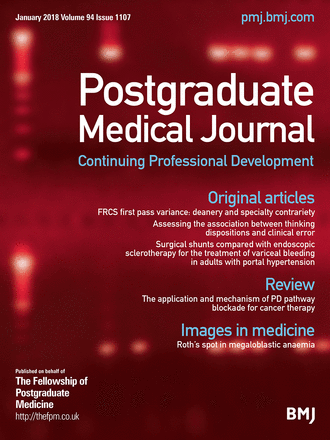
Acupuncture for the treatment of obesity in adults: a systematic review and meta-analysis
2021 Jan Postgraduate Medical Journal Rong-Qiang Zhang, Jiao Tan, Feng-Ying Li, Yong-Hong Ma, Li-Xin Han, Xiao-Li Yang
The study highlighted the efficacy of acupuncture in obesity with lowering body mass index (BMI)
Systematic Review Meta-AnalysisClinical Trials
Clinical trials are research studies that involve people and are conducted to evaluate the safety and efficacy of new treatments or interventions, such as drugs, medical devices, or behavioural therapies.

The combined effect of green tea and α-glucosyl hesperidin in preventing obesity: a randomized placebo-controlled clinical trial
2021 Sep 24 Scientific Reports Yoshitomi R, Yamamoto M, Kumazoe M, Fujimura Y, Yonekura M, Shimamoto Y, et al.
Clinical Study Randomised Controlled Trial EGCG Obesity Green TeaConsumption of green tea enriched with a citrus polyphenol, α-glucosyl hesperidin, can prevent weight gain and reduce body mass index, especially in individuals under 50 years.

The effect of pomegranate extract on anthropometric indices, serum lipids, glycemic indicators, and blood pressure in patients with nonalcoholic fatty liver disease: A randomized double‐blind clinical trial
2021 Sep 08 Phytotherapy Research Goodarzi R, Jafarirad S, Mohammadtaghvaei N, Dastoorpoor M, Alavinejad P
Randomised Controlled Trial Obesity Pomegranate HDL-C Blood Sugar Triglyceride Insulin Resistance Cholesterol Diastolic Blood PressurePomegranate extract supplement shows potential in improving glycemic indicators, serum lipids, anthropometrics, and blood pressure in patients with nonalcoholic fatty liver disease.
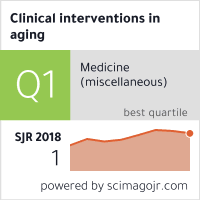
Reduction of body fat and improved lipid profile associated with daily consumption of a Puer tea extract in a hyperlipidemic population: a randomized placebo-controlled trial
2016 Mar 24 Clinical Interventions in Aging Jensen GS, Beaman JL, He Y, Guo Z, Sun H.
Randomised Controlled Trial Cholesterol Pu-Erh Tea ObesityDaily consumption of Puer tea extract results in significant weight loss, reduced body fat, and improved lipid profile in a non-Asian overweight population.
Study Protocols
Published study protocols are detailed plans that outline the objectives, methodology, statistical analyses, and organisation of a research study that have been made publicly available for others to review and use as a reference.
Presentation Slides

Systematic Review
Pomegranate can significantly enhance women's health during and after menopause by reducing hot flashes severity and other menopause symptoms.
Moeini R, Shirafkan H, Gorji N

Systematic Review
Cinnamon supplementation may significantly enhance metabolic status in women with polycicstic ovary syndrome, notably improving high-density lipoprotein and insulin sensitivity, and decreasing low-density lipoprotein, triglyceride, and blood glucose levels.
Maleki V, Faghfouri AH, Tabrizi FPF, Moludi J, Saleh-Ghadimi S, Jafari-Vayghan H, Qaisar SA

Systematic Review
Almond-based diets may be effective in promoting short-chain fatty acid-producing bacteria and lowering glycated haemoglobin and body mass index in patients with type 2 diabetes compared with control.
Ojo O, Wang XH, Ojo OO, Adegboye ARA

Clinical Study
Consumption of green tea enriched with a citrus polyphenol, α-glucosyl hesperidin, can prevent weight gain and reduce body mass index, especially in individuals under 50 years.
Yoshitomi R, Yamamoto M, Kumazoe M, Fujimura Y, Yonekura M, Shimamoto Y, Nakasone A, Kondo S, Hattori H, Haseda A, Nishihira J, Tachibana H

Randomised Controlled Trial
Pomegranate extract supplement shows potential in improving glycemic indicators, serum lipids, anthropometrics, and blood pressure in patients with nonalcoholic fatty liver disease.
Goodarzi R, Jafarirad S, Mohammadtaghvaei N, Dastoorpoor M, Alavinejad P
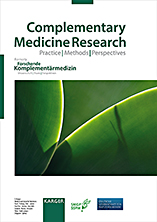
Systematic Review
Green tea consumption notably reduces body weight, body mass index, and body fat, especially in long-term use, at lower dosages, and among overweight individuals with type-2 diabetes.
Asbaghi O, Fouladvand F, Gonzalez MJ, Aghamohammadi V, Choghakhori R, Abbasnezhad A

Daily consumption of coffee and green tea is linked with decreased body mass index, body fat percentage, and cardiovascular risks in middle-aged Japanese women.
Yonekura Y, Terauchi M, Hirose A, Odai T, Kato K, Miyasaka N

Systematic Review
Green tea intake can significantly reduce body weight, body mass index and waist circumference, with the greatest effect seen with lower dosages and shorter treatment durations.
Lin Y, Shi D, Su B, Wei J, Găman MA, Sedanur Macit M, Borges do Nascimento IJ, Guimaraes NS
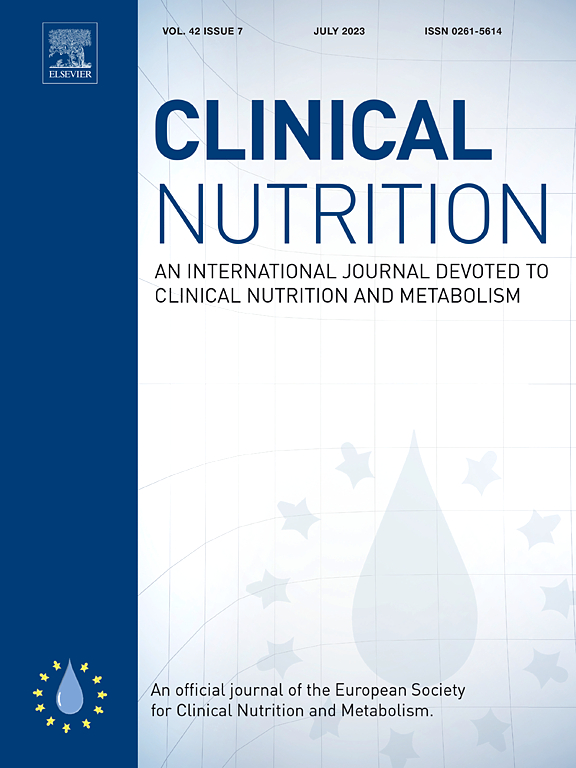
Systematic Review
Cinnamon intake significantly reduces body weight, body mass index, waist circumference, and fat mass in adults, and can be recommended as a supplement for obesity management.
Mousavi SM, Rahmani J, Kord-Varkaneh H, Sheikhi A, Larijani B, Esmaillzadeh A

Systematic Review
Cinnamon supplementation can significantly reduce body weight, body mass index, and waist-hip ratio.
Zeinab Yazdanpanah,Maryam Azadi-Yazdi,Hadis Hooshmandi,Nahid Ramezani-Jolfaie,Amin Salehi-Abargouei,

Systematic Review
Subgroup analysis suggests consuming at least 30 grams of dark chocolate per day for a trial period between four to eight weeks may lead to reductions in weight and body mass index.
Kord-Varkaneh H, Ghaedi E, Nazary-Vanani A, Mohammadi H, Shab-Bidar S

Randomised Controlled Trial
Daily consumption of Puer tea extract results in significant weight loss, reduced body fat, and improved lipid profile in a non-Asian overweight population.
Jensen GS, Beaman JL, He Y, Guo Z, Sun H.
Executive Summary
Write an executive summary in the form of a blog article on the topic of "Research into Chinese medicine treatment for Body Mass Index" summarising the research below and using language that can be easily understood by patients and avoiding medical jargon using a professional and caring tone of voice.
Write an executive summary in the form of a blog article on the topic of "Researched Chinese medicine treatments for Body Mass Index" summarising the research below in an objective and easy to understand way, and using language that can be easily understood by patients. Group the article into Chinese medicine treatments first, followed by nutrition and other treatments. Avoid using medical jargon and use a professional and caring tone of voice.
Write me a concise but easy to understand executive summary on the topic of "Chinese medicine treatments for Body Mass Index" based on the following research that I will give you. Your summary should be 2 paragraphs long in Australian English spelling and include references to the studies.
A Systematic Review published in 2023 in the journal Phytotherapy Research found that Pomegranate can significantly enhance women's health during and after menopause by reducing hot flashes severity and other menopause symptoms. The study aimed at understanding the impacts of pomegranate on women's health through and following menopause. To gather data, a rigorous search was conducted on various academic platforms, including PubMed, Web of Science, Cochrane, Scopus, and Google Scholar, up to the end of 2022. All forms of clinical research studies, from randomized clinical trials to case series, were considered for review. The material was evaluated using the Cochrane RoB 2.0 tool specifically for quality assessment of randomized clinical trials. To quantify the effects of the pomegranate intervention, standardized mean differences were calculated using a random effect model. It was found that pomegranate significantly reduces the severity of hot flashes in menopausal women, improves their high-density lipoprotein levels, and reduces the Follicle-Stimulating Hormone (FSH). However, no significant improvement was noticed in the low-density lipoprotein, body mass index, and body weight. Despite these findings, the study recognized that the results' conclusiveness was hampered due to small sample sizes and the lack of study design elements such as blinding and randomization.
A Systematic Review published in 2021 in the journal Journal of Ovarian Research found that Cinnamon supplementation may significantly enhance metabolic status in women with polycicstic ovary syndrome, notably improving high-density lipoprotein and insulin sensitivity, and decreasing low-density lipoprotein, triglyceride, and blood glucose levels. The systematic review employed a PICO framework where the population was subjects with polycystic ovary syndrome (PCOS), the intervention was oral cinnamon supplement, the comparison group was either a control or a placebo group, and the outcome measured were changes in inflammatory, oxidative stress, lipid profile, glycemic, hormonal and anthropometric parameters, and ovarian function. To gather relevant research studies, databases including PubMed, Scopus, EMBASE, ProQuest, and Google Scholar were searched right from their inception until January 2020 using specific, relevant keywords. Out of the initial 266 studies found, only nine met the criteria for evaluation. The types of studies considered for this review included all clinical trials, animal studies, and english-language journal studies. The results showed a promising improvement in metabolic status in PCOS patients with cinnamon supplementation. This was shown through increased high-density lipoprotein and insulin sensitivity, and a decrease in low-density lipoprotein, triglyceride, and blood glucose levels in these patients. However, the impact of cinnamon on body weight and body mass index was inconsistent across the studies. Similarly, while the studies showed improved results regarding the effects of cinnamon on oxidative stress and ovarian function, the specific mechanisms behind these effects still need to be fully elucidated. Future studies should focus on observing clinical changes after cinnamon supplementation in PCOS through clinical trials with higher doses of cinnamon and a longer duration of intervention.
A Systematic Review published in 2021 in the journal Nutrients found that Almond-based diets may be effective in promoting short-chain fatty acid-producing bacteria and lowering glycated haemoglobin and body mass index in patients with type 2 diabetes compared with control. The research was a systematic review and meta-analysis, conducted using the preferred reporting items for systematic review and meta-analysis methodology. Diverse databases, including the Health Sciences Research Databases via EBSCOhost, Google Scholar, EMBASE, and other article's reference lists, were thoroughly searched following the population, intervention, control, outcome, and study framework. The searches encompassed all relevant studies available from the inception of these databases until August 1, 2021. Nine randomised studies were analysed, eight of which were used for the meta-analysis. Results revealed that diets rich in almonds foster the growth of gut bacteria that produce short-chain fatty acids. Additionally, the analysis demonstrated that such diets effectively reduce both glycated haemoglobin levels and body mass index in patients with type 2 diabetes. However, the effects of almonds were not significant concerning fasting blood glucose, 2-hour postprandial blood glucose, various inflammatory markers, and certain other indicators of diabetes. The biological mechanisms attributed to reductions in glycated haemoglobin and body mass index are thought to be related to the nutritional composition of almonds, namely their high fibre content and low glycaemic index.
A Clinical Study published in 2021 in the journal Scientific Reports found that Consumption of green tea enriched with a citrus polyphenol, α-glucosyl hesperidin, can prevent weight gain and reduce body mass index, especially in individuals under 50 years. The research involved a randomized, placebo-controlled, double-blinded, and parallel-group-designed clinical trial. Sixty healthy Japanese men and women aged between 30 and 75 were included in the study. They were instructed to consume a blend of green tea and α-glucosyl hesperidin (GT-gH). Each dosage contained 178 mg α-glucosyl hesperidin and 146 mg of an active ingredient of green tea, called EGCG. This protocol was followed for 12 weeks. Participants underwent physical, hematological, blood biochemical, and urine examinations to ensure safety. Discussion of findings showed that the GT-gH mixture played a significant role in weight management. By the end of 12 weeks, participants who consumed the GT-gH mix showed prevention in weight gain and a reduction in body mass index when compared to the control group. The anti-obesity effect was particularly observable in individuals aged below 50. These participants experienced lower levels of triglyceride, body fat percentage, and visceral fat levels, alongside a decrease in body weight, BMI, and blood LDL/HDL ratios.
A Randomised Controlled Trial published in 2021 in the journal Phytotherapy Research found that Pomegranate extract supplement shows potential in improving glycemic indicators, serum lipids, anthropometrics, and blood pressure in patients with nonalcoholic fatty liver disease. The study involved 44 patients who had been diagnosed with nonalcoholic fatty liver disease. These individuals were randomly assigned to two groups, with one group receiving two pomegranate extract tablets daily over a period of 12 weeks, and the other a placebo. The researchers measured anthropometric values, serum lipid levels, blood pressure, and glycemic indicators before and after the intervention. In their analysis of the outcomes, the researchers found that the group which received the pomegranate extract showed reductions in total cholesterol, triglyceride levels, the ratio of low-density lipoprotein cholesterol to high-density lipoprotein cholesterol, fasting blood sugar, resistance to insulin, diastolic blood pressure, weight, body mass index, and waist circumference when compared to the placebo group. Additionally, an increase in serum high-density lipoprotein cholesterol was observed within the pomegranate group, indicating the potential utility of this supplement in a treatment regimen for this condition.
A Systematic Review published in 2020 in the journal Complementary Medicine Research found that Green tea consumption notably reduces body weight, body mass index, and body fat, especially in long-term use, at lower dosages, and among overweight individuals with type-2 diabetes. In this systematic review and meta-analysis, a comprehensive search was undertaken on Scopus, ISI Web of Science, and PubMed, for articles related to the topic, up until June 2019. To synthesize the data, a meta-analysis was conducted using the random effects model, and an index was employed to assess the levels of inconsistency in the findings. The assessment of this research involved evaluating eleven eligible articles. Analysis showed that green tea significantly lowered body weight, body mass index, and body fat. Notably, the advantageous effects of green tea were most observable in long-term interventions beyond eight weeks, at doses of green tea equal to or less than 800 mg per day, and among overweight patients. The study underscores the positive role of green tea consumption in improving body composition indicators among type-2 diabetes patients, given these specific conditions.
A published in 2020 in the journal Nutrients found that Daily consumption of coffee and green tea is linked with decreased body mass index, body fat percentage, and cardiovascular risks in middle-aged Japanese women. This cross-sectional study was conducted with 232 Japanese women aged 40-65 years who visited the menopause clinic of Tokyo Medical and Dental University Hospital from November 2007 to August 2017. The women's body composition and cardiovascular parameters were assessed using a body composition analyzer and vascular screening system. Furthermore, their coffee and green tea consumption frequency was gauged using a brief-type self-administered diet history questionnaire. The researchers then explored the associations between these variables using multivariate logistic regression. In terms of results, the study found a negative association between daily coffee consumption and both high body mass index and body fat percentage. Similarly, daily green tea consumption was inversely related to high body fat percentage. The combined daily consumption of coffee and green tea also showed inverse relationships with both body mass index and body fat percentage. Moreover, in pre- and perimenopausal women, daily consumption of both beverages was found to be negatively associated with cardio-ankle vascular index, a measure of cardiovascular risk.
A Systematic Review published in 2020 in the journal Phytotherapy Research found that Green tea intake can significantly reduce body weight, body mass index and waist circumference, with the greatest effect seen with lower dosages and shorter treatment durations. In the methodology used for this study, several databases were exhaustively searched from their inception to September 2019. The goal was to identify clinical trials that had explored the influence of green tea supplements on obesity indices in humans. The dosage, type of extract, and duration of the intervention were key factors for the study. The study design incorporated the use of a random-effects model to aggregate the collected data. In terms of the study's results, they demonstrated notable changes in subjects' obesity indices following the administration of green tea. A significant reduction in body weight and body mass index was observed, which was consistent across all extracted data. The most noticeable change was observed in the reduction of waist circumference in subjects who were administered an equivalent of 800 mg/day of green tea. Also, a more significant reduction in body weight occurred with a green tea dosage of less than 500 mg/day and a treatment duration of 12 weeks. These results affirm the potential use of green tea in improving obesity indices and the study advocates for the inclusion of green tea supplements, combined with a balanced diet and regular exercise, in obesity management strategies.
A Systematic Review published in 2020 in the journal Clinical Nutrition found that Cinnamon intake significantly reduces body weight, body mass index, waist circumference, and fat mass in adults, and can be recommended as a supplement for obesity management. Various online search engines such as PubMed, SCOPUS, Google Scholar, and Cochrane Library were trawled to find relevant articles on the impact of cinnamon consumption on obesity measures. The data from these articles was then combined and expressed as weighted mean difference and 95% confidence intervals utilizing the random-effects method. The potential non-linear association was appraised via fractional polynomial modeling. The study incorporated 12 trials from an initial pool of 679 records, bringing together a total of 786 participants. The aggregated outcome demonstrates that cinnamon intake can significantly decrease body weight, body mass index, waist circumference, and fat mass in adults. The impact on body weight was particularly pronounced in subjects under 50 years old and those with a higher baseline body mass index (≥30 kg/m). Daily dosages of cinnamon at or above 2 grams, and administered for 12 weeks or more resulted in significant reductions in fat mass. There was a non-linear reduction in body weight and waist circumference with the administration of cinnamon over the study period.
A Systematic Review published in 2019 in the journal Phytotherapy Research found that Cinnamon supplementation can significantly reduce body weight, body mass index, and waist-hip ratio. In the meta-analysis, various databases (including Medline, ISI Web of Science, Scopus, Google Scholar, and Cochrane Library) were searched without limitations until August 2019 for relevant randomized controlled clinical trials. The risk of bias of the randomized controlled clinical trials was appraised with the Cochrane collaboration's tool. The random-effects model was employed for the meta-analysis. The conclusive results indicate that cinnamon supplementation has a notable effect in reducing body mass index, body weight, and waist-hip ratio. Meanwhile, cinnamon supplementation didn't yield significant effects on waist circumference and body fat mass. These results were deduced from twenty-one randomized controlled trials involving a total of 1,480 participants.
A Systematic Review published in 2018 in the journal Critical Reviews in Food Science and Nutrition found that Subgroup analysis suggests consuming at least 30 grams of dark chocolate per day for a trial period between four to eight weeks may lead to reductions in weight and body mass index. The study involved a comprehensive search of 35 randomized clinical trials (RCTs) investigating the impact of cocoa/DC on body weight, BMI, and WC up to December 2017. A meta-analysis, using a random-effects model, assessed the pooled effect size, and fractional polynomial modeling was applied to explore dose-response relationships. The meta-analysis did not find a significant overall effect of cocoa/DC supplementation on anthropometric measures. However, subgroup analysis revealed a potential reduction in body weight and BMI when cocoa/DC was consumed at higher doses (≥ 30 g/day) in trials lasting between 4 to 8 weeks. Notably, the reduction in waist circumference followed a non-linear pattern. In conclusion, while cocoa/DC supplementation may not have a universal impact on anthropometric measures, specific doses and durations could potentially influence weight and BMI.
A Randomised Controlled Trial published in 2016 in the journal Clinical Interventions in Aging found that Daily consumption of Puer tea extract results in significant weight loss, reduced body fat, and improved lipid profile in a non-Asian overweight population. This study employed a randomized, double-blind, placebo-controlled design to evaluate the effects of Puer tea extract. A selection of 59 overweight or mildly obese subjects with high cholesterol levels were chosen and assigned to either consume Puer tea extract or a placebo daily for 20 weeks. Measurements were taken at the beginning and every 4 weeks to analyse lipids, C-reactive protein, and fasting blood glucose. Body composition changes were also observed using a dual-energy X-ray absorptiometry scan. Appetite and energy levels were also self-reported by the participants at each visit. The results indicated a significant weight loss tied to Puer tea extract consumption compared to the placebo. Reductions in fat were noted across several body areas and overall fat mass. These findings were significant within the Puer tea extract group but not when compared to the placebo. The consumption of the tea was further associated with an improved lipid profile, including a significantly reduced cholesterol ratio after 4 weeks and a sustainably normal level of other lipoproteins. The tea consumption was also related to a temporary reduction in appetite but showed no notable changes in fasting glucose or C-reactive protein levels compared to the placebo.
Moderation Tools
Topic
Sign In
Users not signed in are limited to viewing the 5 most recent items of content.